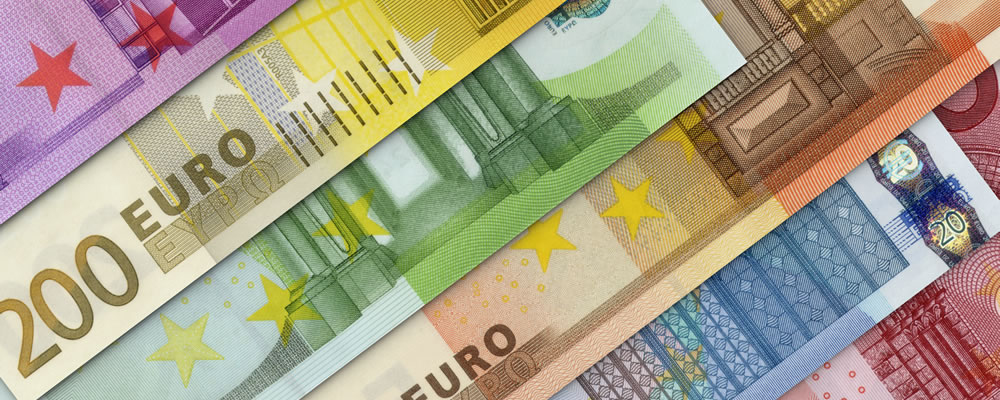The strength of the Euro to Pound exchange rate has been somewhat limited by positive reaction to the latest UK data, with markets increasingly confident that Bank of England (BoE) monetary policy will remain on hold.
- UK inflation surprised upside in September – Signs of increasing price pressures within economy failed to dent Pound demand
- Disappointing Eurozone construction data hampered Euro – Worries over robustness of domestic economy maintained downside pressure
- ECB policy meeting in focus – Less dovish rhetoric could see EUR GBP exchange rate climb higher
- Sterling weakness predicted to continue on deficit worries – Higher public borrowing could encourage further selling
Brexit Jitters Continue to Weigh on Pound Sterling
Despite comments from Chancellor of the Exchequer Philip Hammond, which seemed to point towards a softer form of Brexit, the Pound remained on bearish form on Wednesday afternoon. As a result the EUR GBP exchange rate was trending higher around 0.89 towards the close of the European session.
(Previously updated 11:38 19/10/16)
Demand for the Euro has also been muted by stronger risk appetite and mounting bets that the Fed will raise interest rates before the end of the year.
Rising UK Inflation Failed to Dampen GBP Exchange Rate Strength
A stronger-than-expected uptick in the UK’s September Consumer Price Index failed to weigh particularly on the Pound (GBP), despite expectations for inflationary pressure to pick up significantly over the coming months. This was largely due to the fact that rising inflation is likely to encourage the Bank of England (BoE) to hold off from easing monetary policy again in the near future.
Although jobless claims were found to have risen less than forecast in September this failed to keep the Pound on a stronger footing on Wednesday morning. Investors were discouraged to see that wage growth had remained stagnant, something particularly concerning in the light of the higher inflation figure. With domestic living standards likely to be squeezed over the coming months the appeal of Sterling was somewhat limited.
Confidence in the Euro (EUR) was dented, meanwhile, as August’s Eurozone construction output was found to be decidedly weaker than anticipated. Production growth moderated from 4.1% to 0.9%, suggesting that the domestic economy is not as robust as might be hoped. With speculation also rising over the possibility of an imminent Federal Reserve interest rate hike the Euro to Pound (EUR GBP) exchange rate was prompted to trend lower.
EUR GBP Exchange Rate Weakness Predicted ahead of ECB Meeting
The single currency is likely to experience further volatility ahead of Thursday’s European Central Bank (ECB) policy meeting, despite expectations of no new action at this juncture. Investors have been speculating recently that the ECB could be considering tapering its quantitative easing program in the near future, given the less dovish nature of comments from President Mario Draghi at the last meeting. However, with inflation still a long way from the central bank’s target range it seems likely that any return to tighter monetary policy is still some way off.
Should policymakers adopt a less optimistic tone, though, the EUR GBP exchange rate may struggle to gain any particular ground ahead of the weekend. If the meeting disappoints market hopes then the Euro is expected to weaken across the board, particularly if positive US data continues to shore up the ‘Greenback’ and the chances of greater policy divergence between the Fed and ECB.
Pound (GBP) Pressure Forecast on UK Public Sector Borrowing Report
Expectations are not especially high for the latest UK retail sales data, which is predicted to slow from 5.9% to 4.4% in September. This modest dip in consumer spending could encourage investors to sell back out of Sterling, particularly with concerns already mounting over pressure on real incomes. As researchers at Westpac noted:
‘Concerns over inflationary impacts on household confidence together with broader uncertainty over business investment intensions as “hard” or “soft” Brexit negotiations will weigh on economic prospects and so on GBP.’
Even so, with the Pound having shown an increasing divorce from domestic data since the outcome of the EU referendum the impact of the retail figures could be more limited. Greater investor anxiety could stem from Friday’s public sector net borrowing result, though, with higher levels of borrowing likely to exacerbate worries over the wideness of the UK’s deficit.
Current Interbank Exchange Rates
At the time of writing, the Euro to Pound (EUR GBP) exchange rate was trending higher at 0.89, while the Pound to Euro (GBP EUR) pairing was on a softer footing around 1.11.



